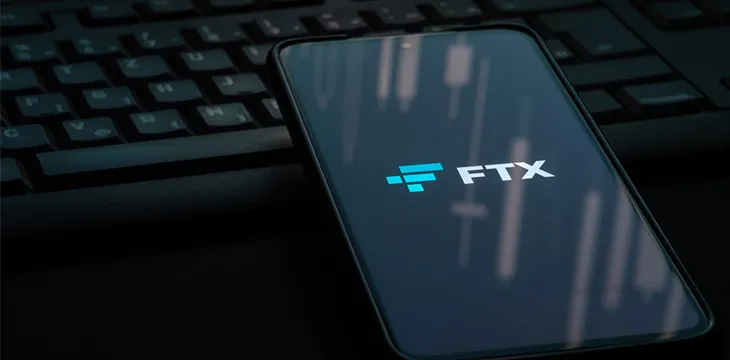|
Getting your Trinity Audio player ready...
|
Sam Bankman-Fried (SBF) continues to show little sign of acknowledging the full extent of his legal problems, his central role in the fall of his FTX exchange, and reality in general.
Last Friday, federal prosecutors asked U.S. District Judge Lewis Kaplan to amend SBF’s bail conditions after the government learned SBF had contacted ‘Witness-1’ aka Ryne Miller, former general counsel of FTX’s U.S.-based FTX US exchange, on January 15. Prosecutors said SBF had reached out to Miller via email and the Signal encrypted messaging app.
SBF’s message to Miller said: “I would really love to reconnect and see if there’s a way for us to have a constructive relationship, use each other as resources when possible, or at least vet things with each other.” Prosecutors say this message is “suggestive of an effort to influence Witness-1’s potential testimony” and is consistent with SBF’s use of Signal for “obstructive purposes.”
Prosecutors say SBF also reached out to other current and former FTX/Alameda Research staff, a violation of standard bail conditions that defendants “avoid all contact” with any potential trial witness. Former Alameda CEO Caroline Ellison, who is cooperating with the feds, told prosecutors that SBF advocated for the use of encrypted apps with auto-delete functions because “it is more difficult to build a legal case if information is not written down or preserved.”
The government wants Kaplan to prohibit SBF from any further use of encrypted apps such as Signal or Slack to ensure he doesn’t make any further attempts at witness intimidation/coercion. SBF should also not contact any FTX/Alameda staff except in the presence of counsel unless the government or court exempts an individual from this no-contact rule.
SBF was hit with eight criminal charges and multiple civil fraud charges in December following the epic collapse of FTX that left millions of customers out of billions of dollars. Since his release on bail and house arrest at his parents’ home in California, SBF has continued to play dumb regarding his own role in this downfall. It appears that his lawyers have no choice but to follow his lead, however hopeless this path may seem.
SBF wants access to FTX assets
SBF’s legal team responded by objecting to the “nature and tone” of the government’s requests for additional bail conditions, saying prosecutors were aware of SBF’s attempts to contact Miller as far back as January 19. The fact that prosecutors chose to file their request “on a Friday night” left SBF’s team suspecting “an apparent effort to portray our client in the worst possible light.” (Not a high hurdle, actually.)
SBF’s team claims their client reached out to Miller merely as a good-faith effort to serve as “a resource” to the smoldering wreckage of FTX. Similar justifications were cited for SBF’s failed attempts to contact John J Ray III, court-appointed CEO of the reconstituted FTX.
SBF’s team says they suggested “an alternative structure” in which their client would have no right to contact certain FTX/Alameda alumni but unfettered access to other staff, as well as to SBF’s father and therapist. Prosecutors were supposedly still mulling this proposal when they filed their Friday night request.
SBF’s team says prosecutors have engaged in similarly “one-sided presentation[s]” with the intent of showing SBF “in the worst possible light.” They cite the government’s previous insistence on blocking SBF’s access to “certain crypto assets in digital wallets belonging to Alameda” based on the unauthorized movement of assets out of those wallets following FTX’s bankruptcy.
Prosecutors alleged that SBF tried to delay FTX’s bankruptcy long enough for him to transfer FTX/Alameda funds to countries other than the U.S. in the apparent belief that he’d be treated less harshly by regulators in these jurisdictions than he would by U.S. authorities. SBF apparently still maintained the delusion that all he needed was a little more time, and he could find a way to replace the billions he’d stolen.
SBF’s attorneys had the gall to suggest that his access to assets contained in FTX/Alameda wallets should be restored based on SBF’s repeated assertions that “he did not access and transfer” the Alameda wallet assets as alleged by the prosecution. They’re asking Kaplan to lift that bail condition based on the fantastical notion that SBF’s word can be trusted on anything at this point.
To no one’s surprise, the government responded Monday by saying, effectively, screw that mop-haired fraud and the horse he rode in on.
The rotten apple doesn’t fall far from the tree
While Alameda’s Ellison may be cooperating with the feds, she and a whole lot of other people central to this drama—including SBF’s family members—aren’t cooperating with the new team in charge of FTX (aka the ‘debtors’).
In a filing with the Delaware bankruptcy court tasked with picking through the bones of FTX/Alameda, the debtors asked for the right to issue subpoenas seeking documents and information from SBF, Ellison, FTX co-founders Zixiao ‘Gary’ Wang and Nishad Singh, and Zhe ‘Constance’ Wang, COO of FTX Trading/co-CEO of FTX Digital Markets.
The debtors also want subpoenas for SBF’s mother Barbara Fried, his father Joseph Bankman, and his brother Gabriel Bankman-Fried, all of whom served in an advisory capacity to SBF in business or politics.
Ellison and Wang “expressly declined” to cooperate with the debtors, while Ms. Fried “has ignored the requests altogether.” Neither Gabriel nor Singh have provided “meaningful engagement or any response” but discussions with Mr. Bankman and Ms. Wang “are ongoing.”
Sureties unmasked … eventually
On Monday, Kaplan ruled that the public will get to learn the identities of the two individuals who separately provided $200,000 and $500,000 bonds to guarantee SBF’s $250 million bond. These sureties’ true identities were known to the prosecution, but SBF’s defense team argued that the pair would face “threats and harassment” if their names were disclosed to the public.
A number of media outlets filed objections to keeping these names under wraps. Kaplan agreed to these objections on Monday, saying that while the public benefit of knowing the sureties’ true identities was “extremely limited at best,” the arguments for keeping them private are also “limited.” Moreover, SBF’s arguments that the sureties would face the anger of FTX customers was “speculative and entitled only to modest weight.” That said, the names will remain under seal until at least February 7 to allow the defense time to file its expected appeal.
It’s Voyager’s fault!
The bones of the defunct Alameda filed a complaint Monday seeking to reclaim the $446 million it sent to digital asset lending platform Voyager Digital in two tranches last September and October. The funds were repayment of loans Voyager provided to Alameda before Voyager filed for bankruptcy protection last July.
Alameda appears to have agreed to repay the sum last autumn in the hope of boosting its sister company FTX US’s bid for Voyager’s digital assets. FTX US won that auction in late September but was forced to abandon those plans once SBF’s empire began its rapid descent into insolvency.
The Alameda filing seeks to shift the focus away from the thievery that pushed SBF’s operations into bankruptcy and instead spotlights alleged improper activity at the pre-bankruptcy Voyager. Specifically, Alameda wants to expose “the role played by Voyager and other cryptocurrency ‘lenders’ who funded Alameda and fueled that alleged misconduct, either knowingly or recklessly.”
Alameda accused Voyager of acting as a “feeder fund” because the funds Alameda borrowed from Voyager belonged to Voyager’s retail investors and were loaned out “with little or no due diligence in cryptocurrency investment funds like Alameda and Three Arrows Capital.” Alameda wants the court to declare its repayments to Voyager to be “avoidable preferential transfers” because Alameda was within 90 days of filing for its own bankruptcy when the repayments were made.
What was publicly unknown at the time of Alameda’s repayments was the sheer depth of the holes in the SBF empire’s balance sheets. SBF’s Voyager bid, like its other ‘rescue’ efforts for bankrupt/struggling crypto platforms, was actually intended to get its hands on those companies’ assets and thus buy SBF more time to plug those holes. In that light, Alameda’s repayments to Voyager were likely viewed as a temporary inconvenience aimed at securing a far more valuable prize.
The Binance exchange won the second Voyager auction, but approval of that deal is still pending. It remains to be seen how a successful clawback of this $446 million from Voyager to Alameda might impact Binance’s plans.
Australia examining financial licenses in wake of FTX crash
Down under, the Australian Securities & Investments Commission (ASIC) released a trove of documents related to its investigation of FTX’s local operations. As initially reported by The Guardian, ASIC officials had expressed concern about FTX’s operations following a March 2022 interview in which SBF talked up his exchange’s plans to offer Aussie traders margin loans with up to 20x leverage.
FTX chose to back-door itself into the Australian market by acquiring a company that already held an Australian Financial Services (AFS) license. That company’s license was issued in 2008 and passed through multiple hands before FTX came on the scene.
In announcing its Aussie launch that March, FTX chose to present itself as “fully registered and licensed,” even though the license was limited to dealing in, market-making for, and providing general advice on derivatives and foreign exchange contracts. The AFS license language contained no mention of crypto assets.
An alarmed ASIC put FTX under “surveillance activity” due to “suspected contraventions of the corporations legislation.” ASIC ultimately issued three notices to FTX following its launch. FTX’s responses haven’t been made public because ASIC is trying not to “prejudice ASIC’s law enforcement activities concerning market misconduct matters.”
It’s worth recalling that such backdoor registrations remain the modus operandi of Binance, whose regulatory-averse founder Changpeng ‘CZ’ Zhao once owned 20% of FTX. This strategy hasn’t always worked out so well for Binance either, particularly in the U.K., where financial regulators have issued public warnings that Binance’s claims aren’t to be trusted.
Effective fraud under investigation in the UK
Speaking of the U.K., a charitable group supporting one of SBF’s most cherished (publicly, at least) causes is under investigation by local authorities. On Monday, the Charity Commission for England and Wales announced an inquiry into Effective Ventures Foundation (EVF) due to FTX’s philanthropic foundation having been “a significant funder” of EVF.
While the Commission stated that there was “no indication of wrongdoing by [EVF’s] trustees at this time,” the inquiry will examine “relationships between the charity’s trustees and its funders and the identification and management of conflicts of interest and/or loyalty.”
The Commission also suggested, “there are indications of potential risks to the charity’s assets.” The apparent fear is that FTX’s bankruptcy proceedings may seek to claw back donations made to EVF with (suspected) FTX customer funds.
SBF was never shy about preaching his alleged belief in effective altruism, aka the idea that one should become stupendously wealthy in order to have the greatest impact making it rain for noble causes. But in text messages exchanged with a Vox reporter last November, SBF ridiculed “this dumb game we woke westerners play where we say all the right shibboleths, and so everyone likes us.”
Avenging legislators assemble!
Meanwhile, Washington, D.C. pols are falling over themselves to be seen doing something—anything—to prevent the next ‘crypto’ meltdown. On Monday, a trio of U.S. Senators led by Elizabeth Warren (D-MA) sent a five-page follow-up questionnaire to Silvergate CEO Alan Lane expressing the hope that he provides a less “evasive and incomplete response” regarding his bank’s past dealings with FTX/Alameda.
Public grandstanding aside, there is one bright spot for most legislators dealing with the ‘crypto winter’ fallout, and that’s that ‘non-crypto’ taxpayers aren’t on the hook for these misappropriated billions.
Mike Katz, a head lawyer at the flailing Digital Currency Group (DCG), told Politico that digital asset “is working towards solutions through the markets and market forces with no government bailouts and no government assistance.” Former prosecutor Martin Auerbach warned that, while institutional investors may be able to recoup a few bucks, hope for retail investors being made whole “is distilled down to almost nothing.”
Brown Rudnick’s William Baldiga, an advisor to the Bahamian government on FTX’s restructuring, hit the nail on the head by noting that investors ought to have known better. “If you’re going to promise customers 6%, 12% return, how is the company going to make the money to give them those returns? Well, too often, only by gambling with the funds the customer gave you.”
So there you have it, folks. You can either maintain this self-deception that crypto is ‘digital gold’ and endure rug-pull after rug-pull, or you can accept that Bitcoin was designed to be spent, not hoarded. When you feel like getting back to that glorious initial promise of friction-free, low-cost peer-to-peer electronic cash, the door’s always open.
Follow CoinGeek’s Crypto Crime Cartel series, which delves into the stream of groups—from BitMEX to Binance, Bitcoin.com, Blockstream, ShapeShift, Coinbase, Ripple,
Ethereum, FTX and Tether—who have co-opted the digital asset revolution and turned the industry into a minefield for naïve (and even experienced) players in the market.

 04-25-2025
04-25-2025 





